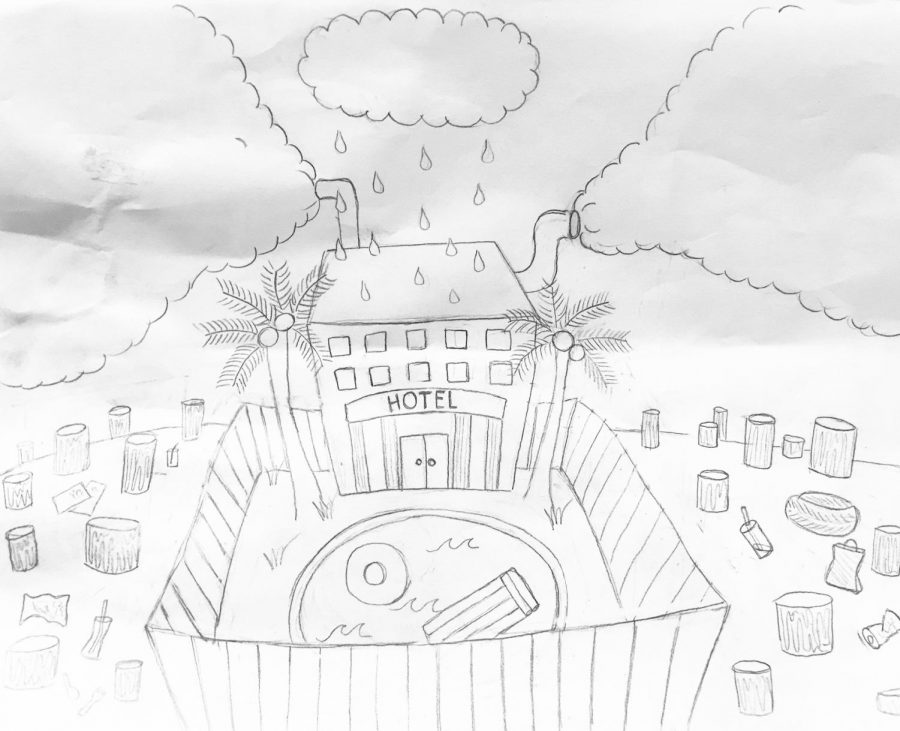How the hotel industry can hurt developing countries
January 19, 2019
Students coming back from winter break vacations don’t realize their impact on developing countries might be worse than they expected.
The hotel and tourism industries are known for overusing fresh water, preventing local residents from accessing reliable water sources.
Developing countries need hotel and tourism establishments to generate foreign exchange, increase job opportunities and gain economic independence.
When there is more demand for tourism in an area, it’s likely there will be greater economic gain.
And the better amenities that hotels can provide for guests, the more tourists want to stay at these hotels.
Because some of these countries struggle to combat severe fluctuations, they are more vulnerable to sudden changes.
A large-scale hotel, such as Marriott Los Suenos in Costa Rica, also brings in negative ecological, social and economic consequences into these countries.
Establishing large hotels creates environmental damage including, but not limited to: pollution, deforestation, destruction of natural wildlife habitats, excessive litter and increased consumption of resources.
According to a 2017 case study done by Dr. Rita Puig of the Universitat Politècnica de Catalunya, hotels consume more resources than the average local community member to provide for guests and maintain luxury amenities.
In Puig’s case study on Coastland Hotels in Spain, golf courses contributed to 87 percent of hotel water consumption and swimming pools 35 percent.
Guests’ water consumption rates are also about 116 gallons per day, double the average local demand.
Areas where hotels are built face these harsh impacts first-hand as resource supply decreases.
This causes more frequent water shortages, and those who can’t afford to keep up with the high prices of water and are forced to do without.
When private property is purchased by a hotel company, the hotel is given the same rights to the land as any other.
The only limit is how much of these resources are available in the natural environment.
More than 200,000 residents in metropolitan areas of Costa Rica are facing water rationing between six to twelve hours per day, according to a Feb. 20 Tico Times article.
Forty-nine thousand residents in areas south of the capital in Desamparados and Alajuelita will also face high rationing of more than twelve hours per day.
To continue economic growth without harmful effects on the environment and people, we need to find a balance.
Strict controls on hotel developments can improve efficiency and maintain consistent economic growth.
There are some solutions to prevent hotels from using up all the resources, such as caps on certain environmental assets.
Caps can stop hotels from consuming too much of one resource. If they exceed limits, a large fee is tacked on by the host country’s government.
Volunteer financial incentive programs can initiate a push towards renewable energy such as personal tax deductions on solar panels and certificates for achieving high standards in sustainable tourism activity.
There are still many undiscovered solutions, but with one step at a time, hotels will be forced to manage water use, which will allow everyone to have access to plenty of water.

















![Can’t buy me [self] love](https://vtcynic.com/wp-content/uploads/2024/04/self-care-FINAL-600x398.jpg)
